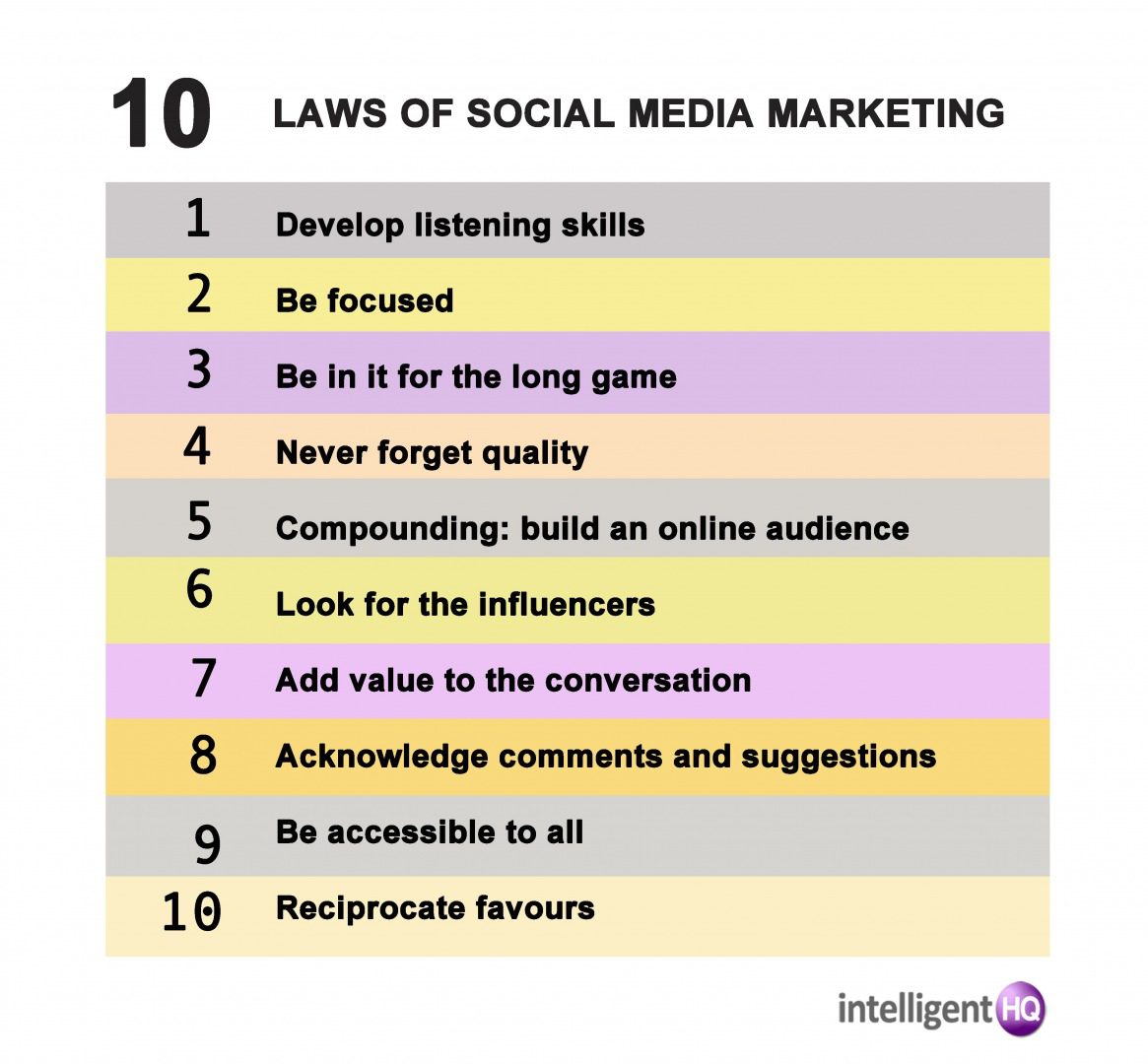
Social media marketing is a subject that we all think we know a little bit about. After all, we use Facebook, don’t we? Yet experience using Facebook or other social networking platforms does not bring with it automatic expertise in social media marketing. There is much more to be learned to attract customers to a business using these tools. Writing for Entrepreneur, Susan Gunelius argues that:
“It’s vital that you understand social media marketing fundamentals… to help build a foundation that will serve your customers, your brand and – perhaps most importantly – your bottom line.”
Susan recommends a number of “laws” that help to guide those that are new to social media marketing.
One is the law of listening, and this is something that many people can benefit from not just on social media platforms but also in person. It is argued that rather than just posting messages and making statements, success is derived from social media marketing through actually listening to what customers have to say. This means actually looking at what the target audience has to say and learning what matters to them. This helps to devise messages that will be appealing for them, rather than simply telling them how great your business is.
Focus is another essential component to operating effectively on social media. Instead of trying to do everything, it is better to have a few key areas of focus. Chances are that your target market is more likely to be on some social media platforms rather than others, and may have more interest in watching video and less in reading articles (or vice versa). This goes back to understanding who your target market is and what they want. Once you know what that is you should give them exactly that, focusing on quality rather than quantity. This last point relates not just to what you post but also to attracting followers – focus on finding real, interest followers than people that will like or follow just anything. These are the folks that matter.

Being in it for the long game is another law of social media marketing. It is no good expecting immediate change and interest in your brand. All of this takes time to build up. This means putting in the effort and changing and tweaking what you are doing along the way to attract potential customers. Going back to quality – clearly this matters. Taking the time to produce quality content that is relevant to the target market will be more likely to be attractive than just slapping up any old thing without much thought.
Another essential law is that of influence. On the web it is all about influencers. There are people in every niche market that have expertise, and who have regular audiences that listen to what they have to say. Taking the time to identify these people will pay dividends, especially if you can build high quality relationships with them, so they end up saying great things about your product or service. Alternatively you could pitch yourself to them as an expert, which could lead to them sharing your content on their blog or social media page.
This will give you exposure to a large and very relevant audience and could boost interest in your offerings. But it is not just about influencers – you need to be nice to everyone. Always acknowledge comments and suggestions otherwise it shows that you do not care, and no brand will benefit from that. Being interested and involved will support interest in your target audience, as again it will show you to listen and care. This provides a far more compelling message than disinterest for customers.
A final point to remember is that you should reciprocate favours and treat others how you would expect to be treated. If you want your content shared by influencers then you should expect to share theirs too. If you’re not prepared to help others out then why should they be prepared to go out of their way to support you? Think about and offer what you can to others to help them support their goals. In the longer term you will likely be rewarded in a big way on social media as a result of this reciprocal behaviour.

Paula Newton is a business writer, editor and management consultant with extensive experience writing and consulting for both start-ups and long established companies. She has ten years management and leadership experience gained at BSkyB in London and Viva Travel Guides in Quito, Ecuador, giving her a depth of insight into innovation in international business. With an MBA from the University of Hull and many years of experience running her own business consultancy, Paula’s background allows her to connect with a diverse range of clients, including cutting edge technology and web-based start-ups but also multinationals in need of assistance. Paula has played a defining role in shaping organizational strategy for a wide range of different organizations, including for-profit, NGOs and charities. Paula has also served on the Board of Directors for the South American Explorers Club in Quito, Ecuador.






























